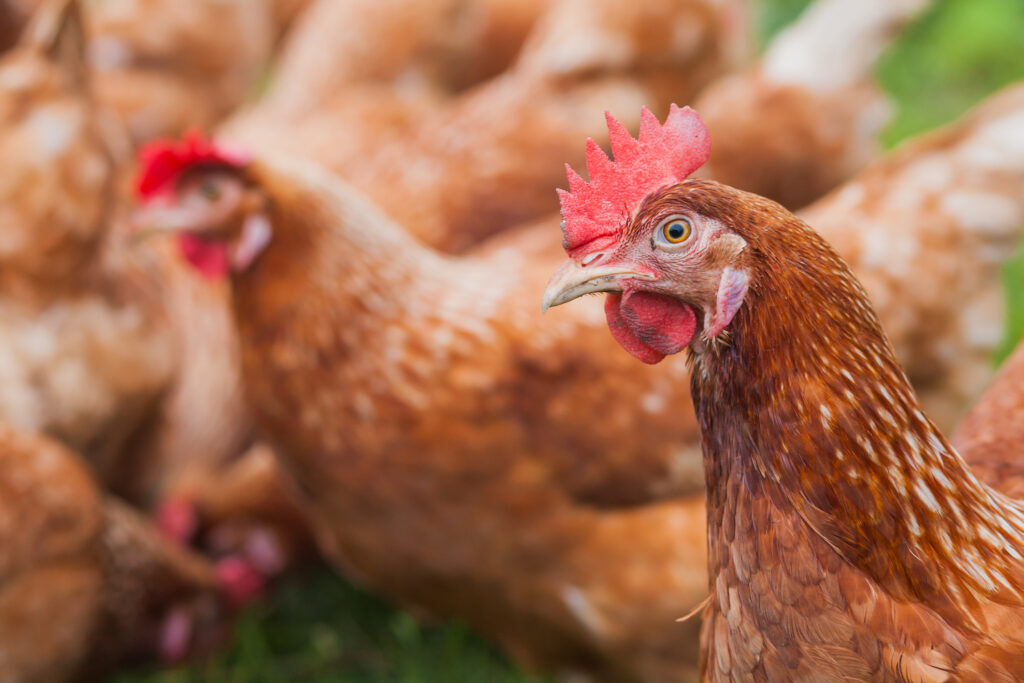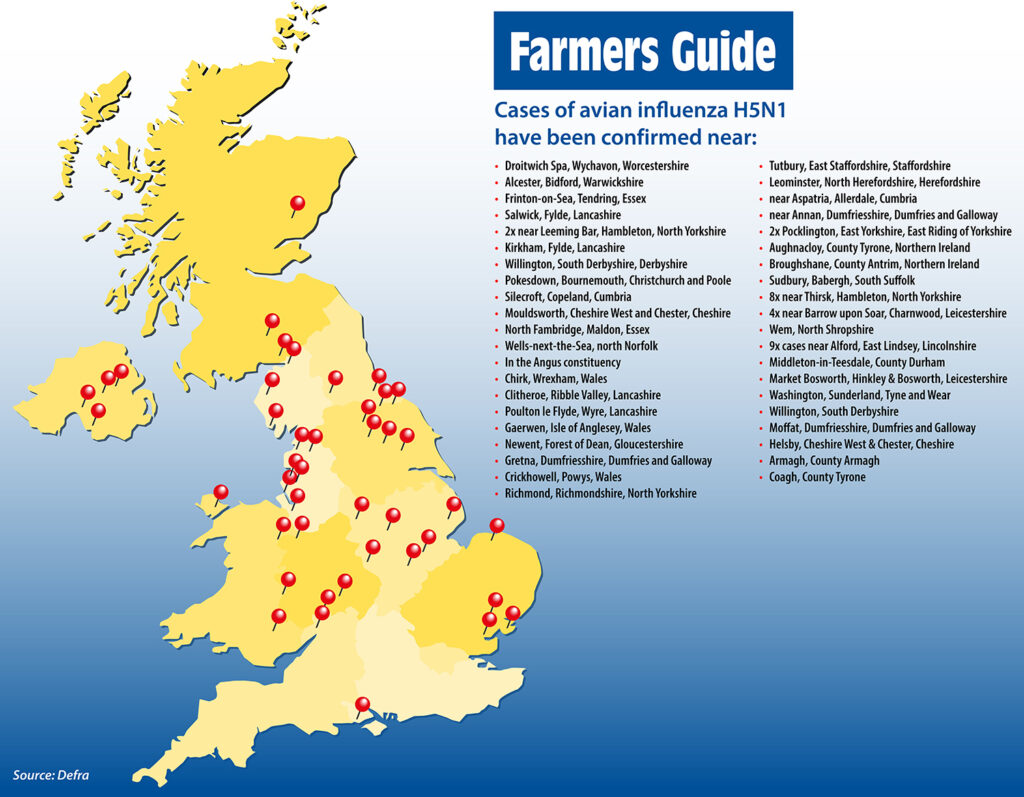‘Take urgent action or risk losing flocks to avian flu’ – chief vet
21st December 2021
The UK is facing its most significant avian influenza risk to date.
UK chief vet Christine Middlemiss is urging poultry keepers to step up efforts to protect flocks from avian flu as more than 60 cases have now been confirmed since the start of November.
There are nine infected premises in Lincolnshire alone with highly pathogenic H5N1.
The government introduced new housing measures last month meaning those who keep chickens, ducks, geese or any other birds are legally required to keep them indoors and to follow strict biosecurity measures.
Defra reiterated advice to prevent mixing between wild birds and chickens, ducks, geese or other birds, and to wash hands and change or clean and disinfect footwear before going into bird enclosures.
Dr Middlemiss said: “We have taken swift action to limit the spread of the disease including introducing housing measures. However we are seeing a growing number of bird flu cases both on commercial farms and in backyard birds right across the country.
“Many poultry keepers have excellent biosecurity standards but the number of cases we are seeing suggests that not enough is being done to keep bird flu out. Whether you keep just a few birds or thousands you must take action now to protect your birds from this highly infectious disease.
“Implementing scrupulous biosecurity has never been more critical. You must regularly clean and disinfect your footwear and clothes before entering enclosures, stop your birds mixing with any wild birds and only allow visitors that are strictly necessary. It is your actions that will help keep your birds safe.”
Dr Middlemiss and environment secretary George Eustice recently expressed concern as the UK battles its largest ever avian flu outbreak. Last year the poultry industry was rocked by a higher-than-usual number of cases, but the figure reached 26 outbreaks from November 2020 to March 2021 – compared to the still-climbing figure of more than 60 this year.
During a recent BBC Radio 4 Today programme Dr Middlemiss acknowledged that a better understanding is needed of why cases have risen so significantly.
Poultry keepers must do the following:
- House or net all poultry and captive birds to keep them separate from wild birds
- Cleanse and disinfect clothing, equipment and vehicles before and after contact with poultry and captive birds – if practical, use disposable protective clothing
- Where possible change their footwear before entering sheds housing poultry and captive birds. If not, then ensure they are thoroughly cleaned and disinfected
- Reduce the movement of people, vehicles or equipment to and from areas where poultry and captive birds are kept, to minimise contamination from manure, slurry and other products, and use effective vermin control
- Thoroughly cleanse and disinfect housing on a continuous basis
- Keep fresh disinfectant at the right concentration at all farm and poultry housing entry and exit points
- Minimise direct and indirect contact between poultry and captive birds and wild birds, including making sure all feed and water is not accessible to wild birds.
Poultry and captive bird keepers must be vigilant for any signs of disease in their birds and any wild birds, and seek prompt advice from their vet if they have any concerns.
Bird keepers should report suspicion of disease in England to Defra Rural Services Helpline on 03000 200 301, in Wales contact 0300 303 8268. In Scotland, contact your local Field Services Office. In Northern Ireland contact DAERA on 0300 200 7840.


